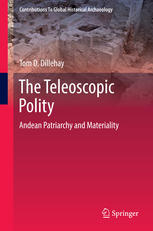

Most ebook files are in PDF format, so you can easily read them using various software such as Foxit Reader or directly on the Google Chrome browser.
Some ebook files are released by publishers in other formats such as .awz, .mobi, .epub, .fb2, etc. You may need to install specific software to read these formats on mobile/PC, such as Calibre.
Please read the tutorial at this link: https://ebookbell.com/faq
We offer FREE conversion to the popular formats you request; however, this may take some time. Therefore, right after payment, please email us, and we will try to provide the service as quickly as possible.
For some exceptional file formats or broken links (if any), please refrain from opening any disputes. Instead, email us first, and we will try to assist within a maximum of 6 hours.
EbookBell Team

0.0
0 reviewsThis volume provides an up-to-date and in-depth summary and analysis of the political practices of pre-Columbian communities of the Araucanians or Mapuche of south-central Chile and adjacent regions. This synthesis draws upon the empirical record documented in original research, as well as a critical examination of previous studies. By applying both archaeological and ethnohistorical approaches, the latter including ethnography, this volume distinguishes itself from many other studies that explore South American archaeology. Archaeological and traditional-historical narratives of the pre-European past are considered in their own terms and for the extent to which they can be integrated in order to provide a more rounded and realistic understanding than otherwise of the origins and courses of ecological, economic, social and political changes in south-central Chile from late pre-Hispanic times, through the contact period and up to Chile’s independence from Spain (ca. AD 1450-1810). Both the approach and the results are discussed in the light of similar situations elsewhere.
Throughout its treatment, the volume continually comes back to two central questions: (1) how did the varied practices, institutions and worldviews of the Mapuche’s ancient communities emerge as a historical process that resisted the Spanish empire for more than 250 years? and (2) how were these communities reproduced and transformed in the face of ongoing culture contact and landscape change during the early Colonial period? These questions are considered in light of contemporary theoretical concepts regarding practice, landscape, environment, social organization, materiality and community that will make the book relevant for students and scholars interested in similar processes elsewhere.